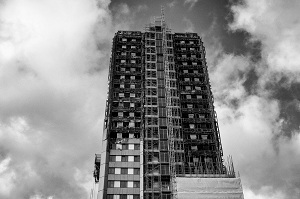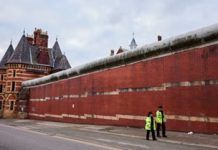Insulation that burned out of control on the Grenfell Tower never passed a fire-safety test and should not have been used, a BBC investigation has claimed. It is alleged by Panorama that the product used on the high-rise was a more flammable version of the insulation that had previously passed safety tests. According to the programme, the insulation with the more flammable formula was then sold for public use and fitted on buildings around the country.
The plastic foam insulation, manufactured by Celotex, was installed underneath cladding made of combustible polyethylene-filled panels that were fitted to the tower’s exterior.
The insulation, called RS5000, burns when exposed to heat and gives off toxic cyanide fumes. The product is no longer on sale. The test carried out on the insulation showed that RS5000 was only safe to use on certain new-build projects when it was combined with a specific fireproof cladding panel, according to the investigation.
Celotex told the programme’s producers it could not comment because it was cooperating with the police investigation and the public inquiry, but it did not deny the allegations.
The programme also revealed that the cladding panels and insulation used at Grenfell were never tested together before the fire. Robert Bond, chief executive of the contractor Rydon which worked on the £8.6 million refit, told the programme that testing of the cladding system wasn’t required because ‘it was deemed to comply’.
The public inquiry into the fire that killed 72 people last June started this week, and will begin with nine days of tributes to those who lost their lives. A statement on Celotex’s website stated: ‘The decision to suspend the supply of RS5000 was taken on 23 June 2017 and remains in place. ‘We are following the independent review of Building Regulations and fire safety, and the comments from the industry and its stakeholders around testing. We continue to offer full cooperation with the Grenfell Tower inquiry and related investigations.’








